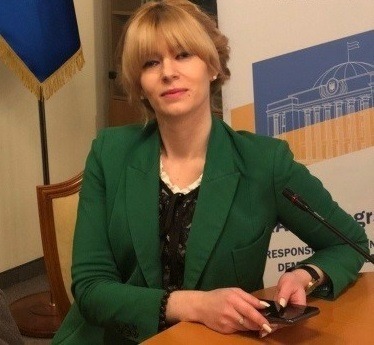The availability of registries significantly streamlines processes in the peacetime. However, in times of war, there is a high probability that the aggressor will use the information of the registers in an adverse way, creating threats to the security of the state, businesses, and citizens. Therefore, the state authorities decided to limit access to some state registries. In this article we investigated, to which key registries the government restricted or discontinued access due to Russia’s full-scale invasion and which operate even during the martial law to ensure transparency and open data.
Disclaimer. We thank our readers for their attention. After their comments, we updated the article on September 14 to provide clarifications.
As of 2021, Ukraine was the first among European countries in open data development, ranking sixth in the 2021 Open Data Maturity Report. However, on the night of January 14, 2022, over 70 government websites were targeted with WhisperGate in one of the most massive cyberattacks ever. The main purpose of the attack was to reduce trust in public personal data protection systems and damage databases. Therefore, there was no doubt about Russia’s involvement, which was confirmed by the joint investigation of the Ministry of Digital Transformation, State Security Service (SBU), and Cyberpolice. According to the SBU, there was no information leak or loss of personal data. Yet, at the same time, this incident revealed “vulnerable spots” of critical information infrastructure, resulting in the temporary suspension of many other government websites to prevent the attack from spreading to other resources to contain the technical issue.
After Ukraine considered the system’s “weaknesses” and quickly restored the platforms, it faced a similar situation one week before and after the start of russia’s full-scale invasion. On February 24, 2022, SE NAIS temporarily suspended the operation of the unified and state registers administered by Ukraine’s Justice Ministry. This temporarily (the word has been added – ed.) made it impossible to carry out real estate transactions, create and register legal entities, sole proprietorships, and public associations, perform notarial acts, conduct public procurement, and check information about public procurement participants, etc.
On February 28, the Cabinet of Ministers streamlined procurement operations by changing the procedure to allow concluding direct contracts under martial law, bypassing the Prozorro auctions. At the Initiative of the Ministry of Infrastructure and Prozorro, prompt publication of the results of purchases made under tripartite contracts (with regional military administrations as the customers and Ukrzaliznytsia as the payer of budget funds) was resumed on April 13. In June, the government reinstated mandatory purchases in the Prozorro system (the paragraph has been added – ed.).
Some registers continue to operate without restricting users but only in the areas with no active hostilities within individual administrative-territorial units. These are the Unified Registry of Powers of Attorney (fully accessible since February 24), the Unified Registry of Special Forms of Notarial Documents (the so-called Registry of Forms: fully accessible since February 24), the Unified State Registry of Regulatory Acts; the State Registry of Civil Status Acts (currently accessible by civil registration offices); the State Registry of Encumbrances on Movable Property (accessible since March 23); the Unified Registry of Debtors (accessible since May), the Unified State Registry of Court Decisions, and the Unified State Registry of Persons Who Committed Corruption or Corruption-related Offenses.
Ukrainian authorities began to quickly look for a way out of the situation because shutting down key registers suspended all activities related to registering information about individuals, legal entities, property, and documents created and maintained by the state. The solution aimed to find a balance between protecting data from possible use by the enemy to harm the interests of Ukrainians and the need to register the most urgent acts within the country (the sentence has been updated – ed.). Next, let us analyze what happened in various areas of open data.
According to the State Service of Special Communications and Information Protection data, 70 state websites were attacked, and ten were affected by incidents of unauthorized access, with no changes in the websites’ content or personal data leaks. On January 14, the Minister for Digital Transformation confirmed the restoration of most websites, stressing that no registers were affected by the attack (the sentence has been added – ed.).
Banking system during the martial law
Ensuring the stability of Ukraine’s banking system became one of the main challenges after the introduction of martial law. Thanks to the NBU bold action, it continues to operate, albeit with some temporary restrictions relating to open information about non-banking financial services market players. To strengthen security, the NBU Board decided to limit user access to data from individual registers, including the State Register of Financial Institutions, the Register of Collection Companies, and the State Register of Insurance and Reinsurance Brokers. In addition, the regulator suspended access to the Integrated Information System for all but authorized financial service providers. The restrictions apply during the entire period of martial law.
On the Unified State Open Data Portal, information from the State Register of Banks has not been updated since February 22, with access to previous data working as usual. However, it is still possible to obtain up-to-date information about banks. The NBU official website provides extended search options that allow to find information on the essential indicators (assets, liabilities, capital, and financial results), final beneficiaries, the list of branches with addresses, and the banks’ ownership structure.
Legal entities, private entrepreneurs and NGOs
Since March, state registration of legal entities, individual entrepreneurs, NGOs as well as of immovable property rights and their encumbrance under martial-law conditions has been carried out in line with CMU Resolution No. 209. The Resolution allows registration of selected activities of entrepreneurs and legal entities, such as replacement of an enterprise director due to his/her death, creation of charitable organizations and public associations helping the military to fight against the aggressor and assisting war victims. Only state registrars and Ministry of Justice officials have direct access to the Unified State Register of Legal Entities, Individual Entrepreneurs, and Public Associations (USR). The Cabinet of Ministers streamlined the bureaucratic processes, making it possible to immediately start state registration based on a complete package of documents in paper or electronic form.
However, this did not resolve the problem of suspending other registers such as the Unified Register of Enterprises, which are under bankruptcy proceedings; the State Register of Immovable Property Rights; the State Land Cadaster; and the Unified State Register of Court Decisions.
In late March, the Ministry of Justice updated the procedure for state registration of legal entities and non-profit organizations during martial law, expanding the range of entities that can be registered and the list of administrative services that can be provided in the areas with no active hostilities. Now one can register new charitable organizations and update information about them, create a limited liability company, change the economic activity of a legal entity, and register a sole proprietorship. However, the USR portal has not resumed operations. As of now, information is not made public in an open data format, thus entrepreneurs cannot use electronic services to independently create extracts from the USR or access information about other legal entities or private entrepreneurs. Under the circumstances, a solution is to apply to an authorized subject of state registration, a local government, or a notary and obtain a document in paper form. Starting from March, it is possible to get an extract from the Opendatabot service.
In June, the Cabinet of Ministers granted the users access to all registers administered by the Ministry of Justice. The users must submit requests to the registers’ technical administrators (the users include local authorities, local governments, Public Integrity Council members, notaries, etc., i.e., anyone who needs access to conduct their activities).
In April, state registers started to gradually open up. To restore access to temporarily suspended records of the Ministry of Justice, users need to contact the respective regional branch of the state enterprise “NAIS”. It is, therefore, possible to use state registers despite martial law.
Information from the Register of Property Rights
Real estate transactions were completely blocked for nearly two months of the full-scale Russian invasion. In late April, access was partly restored to the State Register of Immovable Property Rights (SRIPR), containing information about rights to real estate, their encumbrance, and their objects and subjects in the areas of no active hostilities.
Today, state registrars, Justice Ministry officials, and notaries on the official list approved by the Ministry of Justice have access to the SRIPR and can perform registration actions. Before February 24, 2022, if one needed to obtain information from this register, it sufficed to log in on the website using a digital signature (DS) and apply for an extract. The service fee for obtaining electronic information was 0.0125 of the subsistence minimum for non-disabled persons (i.e., UAH 30 in 2021).
Extracts from the land registry records
Operation of the State Land Cadaster (SLC), a unified public system of land registration and management, was also temporarily suspended. It resumed operation on May 19, with severe restrictions. In particular, it cannot provide information in extracts and document copies. The SLC contains information on the quantity and quality of land within Ukraine’s state border, possible purposes and restrictions on land use, as well as data on land owners and users. Access to such information might pose risks to people’s lives in areas of active hostilities and temporarily occupied territories. Therefore, only designated state cadaster registrars, certified land surveyors, and surveying engineers can use the information. During martial law, the data from the SLC is not publicized, and the Public Cadastral Map is not available.
Information from the Bankruptcy Register
Currently, access to the online service providing information from the Unified Register of Enterprises under bankruptcy proceedings is closed. However, it is possible to obtain information in the form of an information letter by submitting an electronic or written request to the Ministry of Justice or its respective regional office.
Transparency in wartime
On August 1, the Ministry of Digital Transformation announced that it would reopen the Open Data Portal, which shows Ukraine’s readiness to stick to the principles of transparency and accountability even under the martial law.
Between July 29 and August 20, the Ministry of Digital Transformation conducted (the period has been specified – ed.) public hearings regarding forming a comprehensive list of data sets subject or not subject to publication during martial law. The results of the hearings are currently unknown, but several public organizations opposed the initiative (the sentence has been added – ed.). On the one hand, it is indeed necessary to limit distribution of sensitive information (e.g., from the Register of Ukraine’s Seaports, the Register of Certified Airfields (Runways), the Register of Grain Warehouse Documents, and the State Register of High-risk Objects). This information could threaten Ukraine’s national security should it fall into the enemy’s hands.
On the other hand, the draft list includes registers containing information of public interest. These are the State Register of Printed Media and Information Agencies Engaged in Information Activities, the Unified State Register of Declarations of Persons Authorized to Execute State or Local Self-Government Functions, and the Unified State Register of Persons Who Committed Corruption or Corruption-related Offenses. Given the specifics of some registers providing open access to personal data (e.g., the Register of Declarations of Family Relationships of Judges), one should consider the possibility of publishing publicly known information except the data that could potentially cause harm (e.g., data about individuals related to judges, their places of work (service), and the positions they hold). That is the data that might help find out the individuals’ place of residence or the location of their property. There is a question of whether martial law prevails over the public interest – and some civil society organizations have already provided arguments in favor of the public interest.
The war promoted the new things
Due to the hostilities on Ukraine’s territory going on for over six months, it became necessary to create the Register of Damaged and Destroyed Property to collect data on real estate damaged or destroyed during Russia’s military aggression.
The protracted state of war and forced closure of most notary offices required adapting to new realities to make the lives of citizens easier in these conditions. Together with the Opendatabot service, the Notary Chamber of Ukraine created a register of notaries in Ukraine who continue to work and provide assistance during wartime. According to the Service, “For children to evacuate and cross the border accompanied not by their parents, but other relatives or trusted persons, their parents’ notarized consent is required.” There can be a large number of such vital documents.
Data digitization continues even in wartime. In August (seven months after announcing it), the Ministry of Digital Transformation and the Ministry for Communities and Territories Development started creating the Unified State Register of Addresses (USRA) and the Register of Buildings and Structures (RBS) using the updated software of the Unified State Electronic System in the Construction Sector (USESCS).
Conclusions and recommendations
Due to martial law, access to many registers has been temporarily restricted since some of the data used to fight corruption, develop the economy, and build democratic society in peacetime could potentially be used by Russia against Ukraine. Therefore, one of society’s main tasks after the war ends is control over the transparency of decisions made by the state authorities in this period and verification of actual access to information in the registers, particularly those of public interest.
We believe it is necessary to fully restore access to the NBU search system and update data in the registers administered by it after the end of martial law. Likewise, full access to the Unified Register of Enterprises, the State Register of Immovable Property Rights, and the Bankruptcy Register should be restored. It will also be necessary to review the restrictions introduced during the martial law and make appropriate changes to the operation of the State Land Cadaster, as well as update the Public Cadaster Map. After the war ends, some land will be polluted, thus its allowed use will need to be revised.
Next, we present the list of legal acts (it can be revised) that will lose their validity after martial law is lifted:
- On approving the list of notaries performing notarial acts under martial law regarding valuable property
- Some aspects of notarial activities under martial law, No. 164, dated February 28, 2022
- On amending clause 13 of the Regulations on State Registration of Regulatory Acts of Ministries and Other Executive Authorities, No.172, dated March 1, 2022
- Some aspects of state registration and operation of unified and state registers whose holder is the Ministry of Justice in martial-law conditions, No.209, dated March 6, 2022
- On regulating the activities of non-bank financial services market participants, non-bank financial groups, payments market participants, collection companies, and legal entities licensed to provide collection services to banks, No.39, dated March 6, 2022
- Some aspects of state registration of marriage under martial law, No.213, dated March 7, 2022
- Some aspects of ensuring the operation of information and communication systems, electronic communication systems, and public electronic registers under martial law, No.263, dated March 12, 2022
- On amending some Laws of Ukraine regarding ensuring the functioning of information and communication systems, electronic communication systems, and public electronic registers, No.2130-IX, dated March 15, 2022
- Some aspects regarding access to the automated system of executive proceedings and the Unified Register of Private Executors of Ukraine during martial law, No.1310/5, dated April 4, 2022
- On emending some CMU resolutions regarding the activities of notaries and the operation of unified and state registers, whose holder is the Ministry of Justice in the martial-law conditions, No.480, dated April 19, 2022
- On amending Resolution No.39 of the Board of the National Bank of Ukraine of March 6, 2022, No.77, dated April 20, 2022
- Some aspects of the administration and operation of the State Land Cadaster under martial law, No.564, dated May 7, 2022
- On amending some CMU resolutions regarding notary and state registration under martial law, No.719, dated June 24, 2022
- Some aspects of implementing permit and registration procedures in construction under martial law, No.722, dated June 24, 2022
- On amending Resolution No.39 of the Board of the National Bank of Ukraine of March 6, 2022, No. 153, dated August 12, 2022
- On amending Resolution No.153 of the Board of the National Bank of Ukraine of December 24, 2021, No.177, dated August 12, 2022
This publication has been produced with the assistance of the European Union. The contents of this publication are the sole responsibility of Vox Ukraine and can in no way be taken to reflect the views of the European Union.
Attention
The authors do not work for, consult to, own shares in or receive funding from any company or organization that would benefit from this article, and have no relevant affiliations




